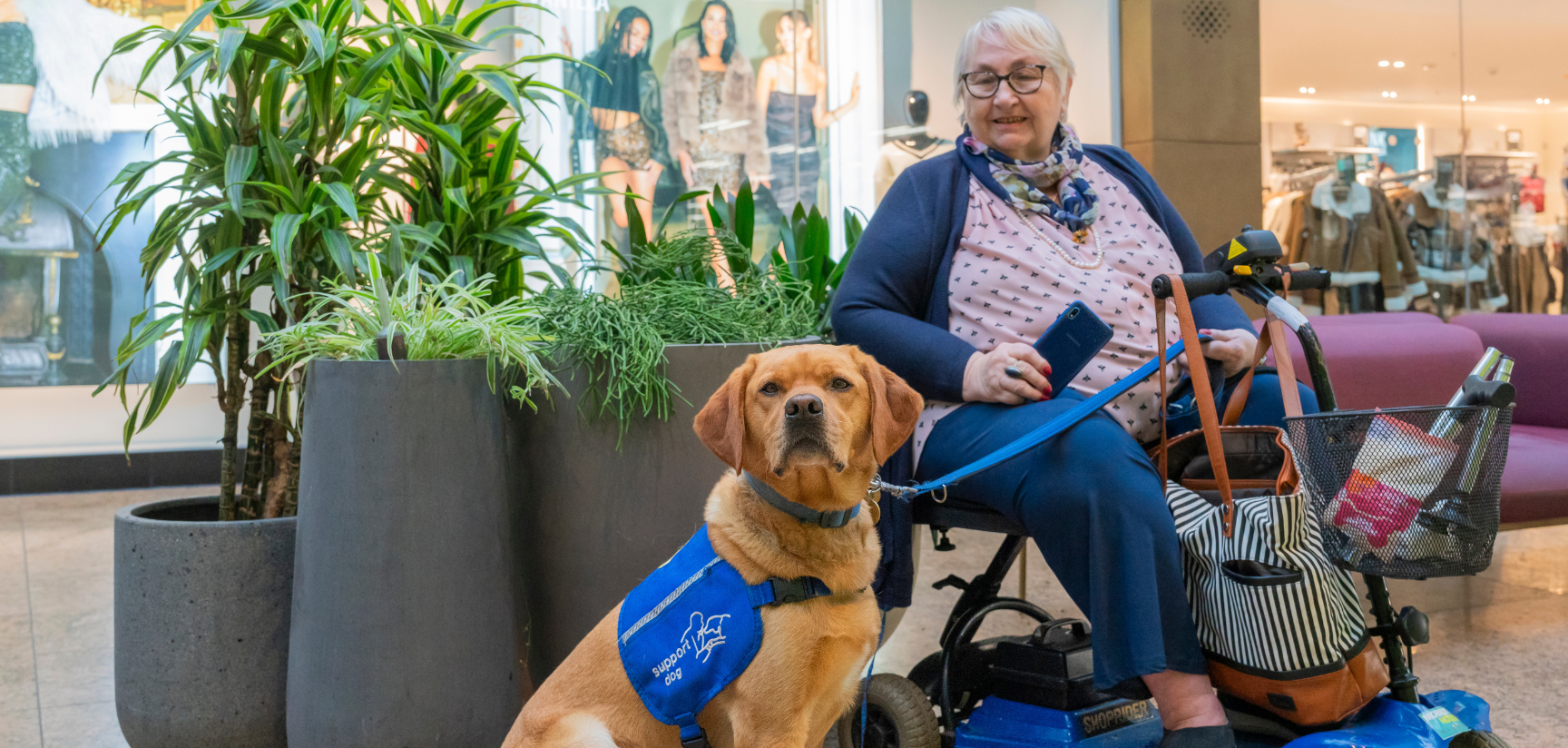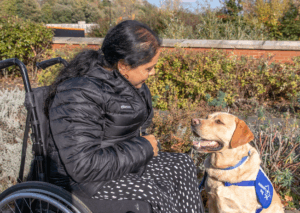
Peggy the support dog celebrates her birthday on 10 May. She is an autism assistance dog, who gives her human the confidence to try new things and feel safe. Peggy is one of many dogs trained by Support Dogs, a charity that works with dogs and people to offer life-changing support, for those affected by long term disabilities and medical conditions.
Training dogs to support humans for over 33 years
It’s amazing the impact a trained support dog can have on someone’s life. Their success rate is impressive. Support Dogs train dogs to work in three areas:
• Epilepsy seizure alert
• Autism assistance
• Disability assistance
Epilepsy seizure alert dogs are trained to provide a 100% reliable warning in advance of a seizure. This allows the person being helped by the dog to get prepared and live safely and independently.
Dogs that are trained to support autistic children to help them to be more active, independent and calm. A support dog helps the young person to navigate the world and its complexities.
Finally, the charity offer a general disability assistance programme, where the dogs act as 24/7 carers. They might work with people who have MS, Cerebral Palsy or a spinal cord injury. These dogs can help with a wide range of practical and personal care tasks.
Rita Howson, CEO, Support Dogs said,
“Our services are provided free of charge and a support dog relationship lasts on average 8 years. 1 in 4 of the dogs we train come to us from rescue centres or as unwanted pets. It’s our job to find dogs that have the personality and intelligence to be excellent support dogs.”
£15K from players of The Health Lottery for the Disability Assistance Programme
£15,000 has been given to fund an instructor working with ten dogs on the Disability Assistance Programme. Support Dogs really demonstrated the impact a trained dog can have on the quality of life of an individual. Training animals (and people) to forge a successful dog-human partnership needs a high level of expertise and funding and we were happy to offer a grant to support this.

A support dog and their human outside in a garden.
Rita said,
“100% of our current service users state that their support dog has reduced their care needs and that they are now safe and more independent. We also aim to positively impact a whole family. 80% of current service users state that a family member has been able to accept paid work instead of care work since the introduction of a support dog.”
If you would like to know more about Support Dogs, visit their website and follow them on social media.
Website: www.supportdogs.org.uk
Facebook: @ supportdogsuk1
X: @supportdogsuk